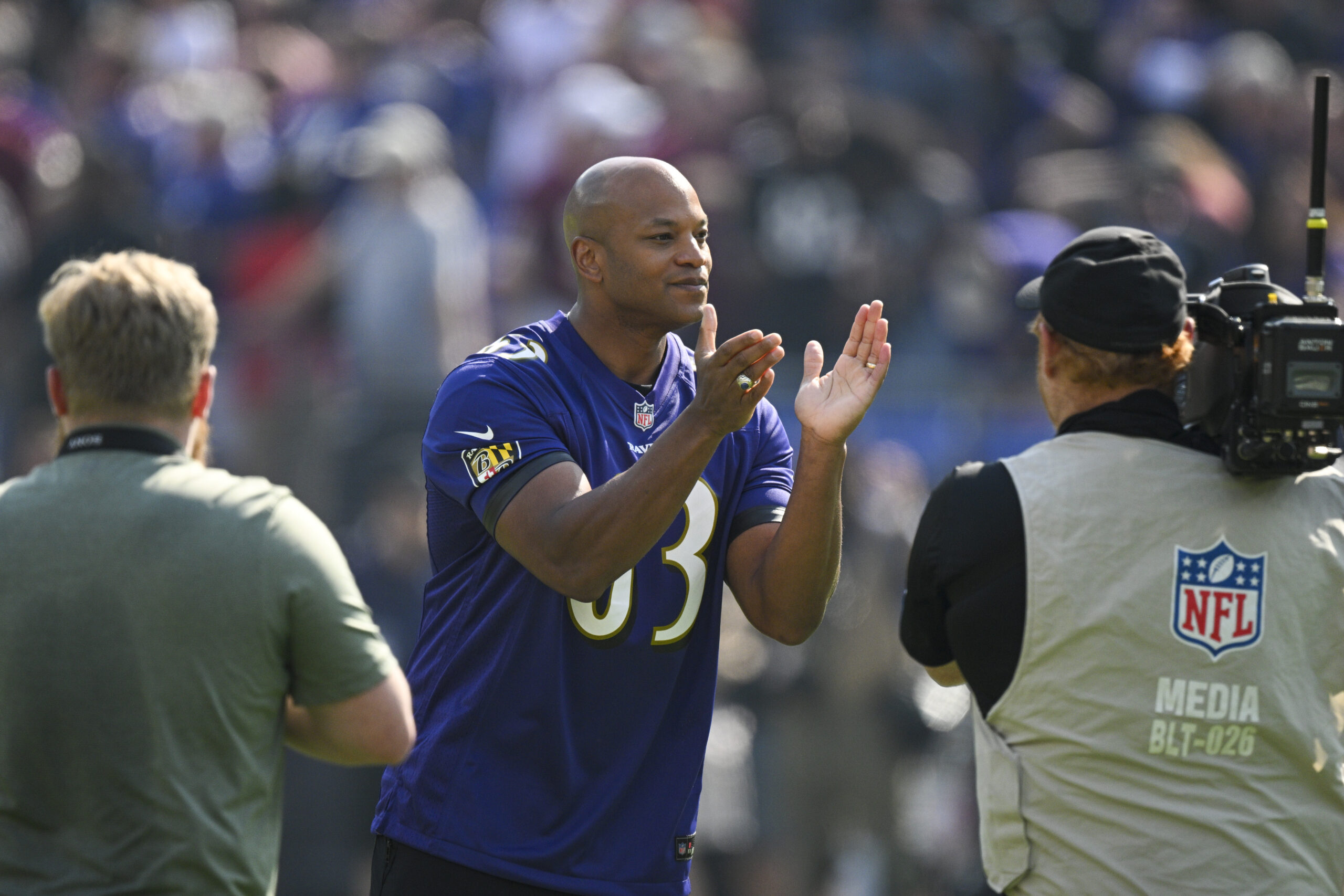
- Maryland Gov. Wes Moore (D) today released a budget plan
- The state faces a $3 billion deficit
- Included in his budget plan is a tax hike on the state’s sports betting and table game tax rates
Another state is taking a look at potentially hiking its sports betting tax rate.
Maryland Gov. Wes Moore (D) today released a budget plan that addressed the state’s $3 billion deficit. Moore explained a plan to reduce government spending by $2 billion and place a higher income tax rate on residents who make more than $500,000 and $1 million a year.
Included in his plan is a hike on Maryland’s 15% sports betting tax rate.
A Proposed 100% Sports Betting Tax Increase
According to Associated Press reports, Moore is proposing a 100% increase on Maryland’s sports betting tax rate, from 15% to 30%, in his newest budget plan. Moore also proposed an increase to state casino table games, bumping the rate from 20% to 25%.
Revenues under the governor’s plan would total about $987 million, according to the AP.
If approved, Maryland’s sports betting tax rate would lag behind only New York (51%), New Hampshire (51%), Rhode Island (51%), Pennsylvania (36%), and Vermont (31.5%) among the 38 states (and Washington, D.C.), with legalized sports betting.
Maryland’s sports betting market has exceeded most expectations after launching in December 2021. Through the first five months of FY 2024, Maryland has reported more than $40 million in sports betting tax revenues to the Blueprint for Maryland’s Future fund.
Since the inception of Maryland’s sports wagering program, Maryland has reported $128,518,900 in sports betting tax revenue. Under Moore’s proposed rate of 30%, Maryland would have seen more than $256 million in tax revenues.
Latest State to Explore Rate Increases
Maryland joins a handful of states to explore the possibility of increasing its tax rate.
Both Ohio and Illinois lawmakers successfully lobbied for increased rates within the last two years.
Gov. J.B. Pritzker (D) successfully included a new tiered tax rate for sports betting operators in his FY 2025 budget. The progressive tax rate was the first of its kind in the country, which taxes operators based on reaching certain thresholds of annual gaming revenue.
Illinois originally taxed operators at a 15% rate.
Operators currently pay taxes based on the following adjusted gross sports betting revenue totals:
- $0 to $30 million: 20%
- $30 million to $50 million: 25%
- $50 million to $100 million: 30%
- $100 million to $200 million: 35%
- Over $200 million: 40%
Ohio also successfully increased its tax rate within the last several year. When Ohio Gov. Mike DeWine (R) signed the 2023 state budget into law on July 3, it included a tax rate increase to 20% just seven months into the state’s sports betting history.
Ohio lawmakers originally agreed to a 10% sports betting tax rate, but quickly realized they were leaving millions of revenue on the table each month.
Louisiana Rep. Roger Wilder (R-71) proposed raising the state’s tax rate from 15% to 51% this past November, but voluntarily deferred his bill after the legislation received little support from lawmakers.
Maryland Governor Larry Hogan recently proposed an increase in the tax rate on sports betting in the state. The proposal aims to generate more revenue for the state while also addressing concerns about the potential negative impacts of sports betting.
Currently, Maryland imposes a 15% tax on sports betting revenue. Governor Hogan’s proposal would increase this tax rate to 20%, making it one of the highest in the country. The additional revenue generated from this increase would be used to fund education, public safety, and other essential services.
Proponents of the proposal argue that the higher tax rate would help offset the costs associated with regulating and overseeing the sports betting industry. They also believe that it would discourage problem gambling by making it more expensive for operators to offer sports betting services.
However, opponents of the proposal argue that a higher tax rate could drive sports betting operators out of the state, leading to a decrease in revenue overall. They also point out that Maryland already has a relatively high tax rate compared to other states, which could put it at a competitive disadvantage.
It is important to note that the proposal is still in the early stages and will need to be approved by the Maryland legislature before it can take effect. Lawmakers will need to carefully consider the potential impacts of the proposed tax increase on both the sports betting industry and the state as a whole before making a decision.
Overall, Governor Hogan’s proposal to increase the tax rate on sports betting in Maryland has sparked a debate about the best way to balance the need for revenue with concerns about problem gambling and industry competitiveness. It will be interesting to see how this proposal progresses in the coming months and what impact it may have on the state’s sports betting industry.